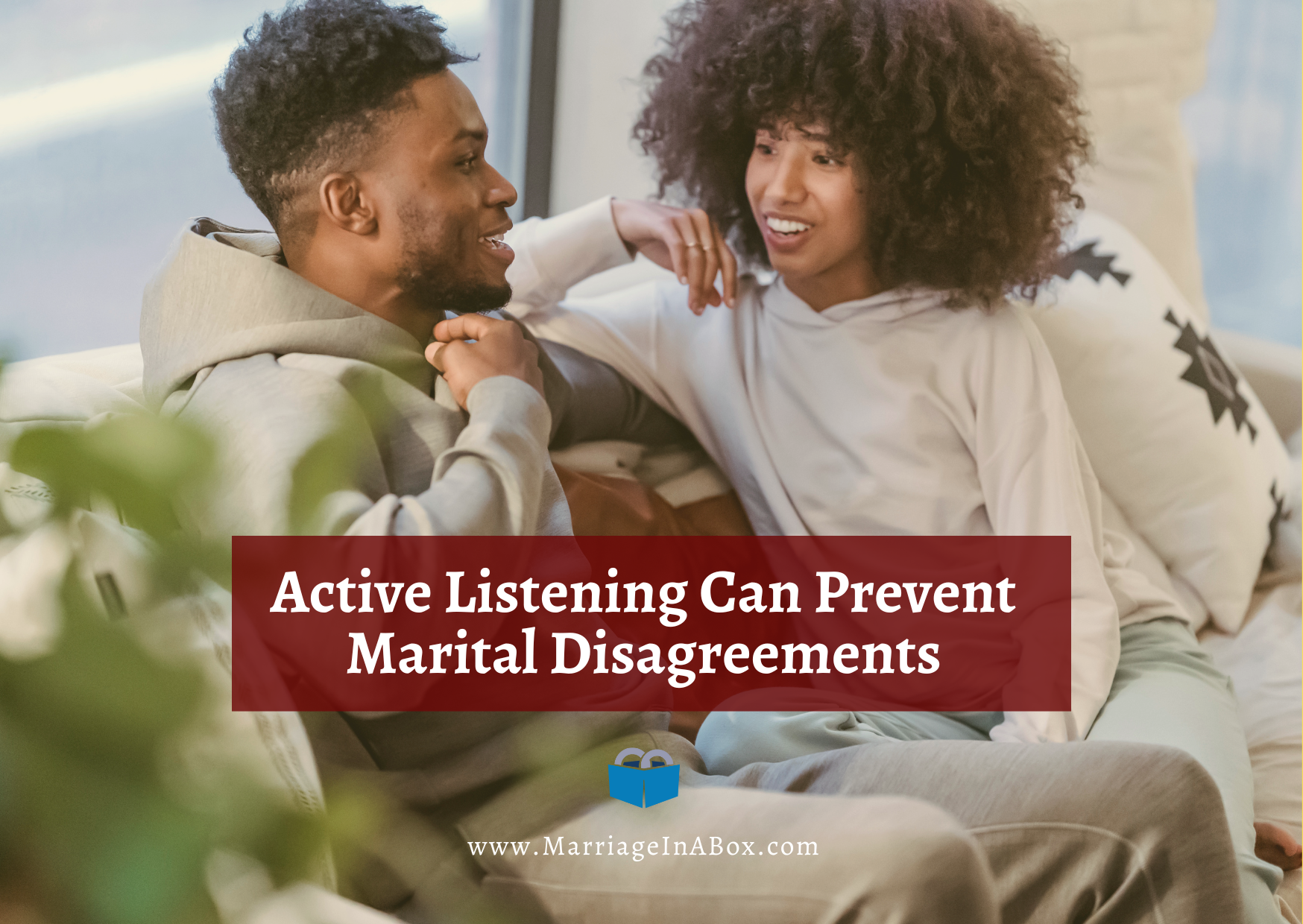Active Listening Can Prevent Marital Disagreements
Posted on

Communication involves both speaking and listening. Active Listening is intently listening and responding to another person, which improves mutual understanding. It is an essential first step to diffusing conflict and seeking solutions to problems.
Active Listening is crucial in communication because it keeps you positively engaged with your conversation partner, making the other person feel valued and understood. This skill is foundational for a marriage or successful conversation in any setting, whether at work, home, or socially. When you practice active Listening, you will engage fully in what the other person is saying.
The Importance of Preventing Marital Disagreements
Unhealthy disagreements can negatively affect both partners' mental health and physical well-being. Conflict can also positively affect a healthy relationship by creating growth opportunities. Mishandling conflict can cause significant harm to a relationship.
Understanding Active Listening
Active listening involves going beyond simply hearing another person's words and seeking to understand their meaning and intent. It requires being active in the communication process.
Active listening core components include:
- Being fully present in the conversation
- Showing interest by practicing good eye contact
- Noticing (and using) non-verbal cues
- Asking open-ended questions to encourage further discussion and clarification.
- Paraphrasing by restating the speaker's thoughts in your own words.
- Withhold judgment and advice.
Here are some tips to help you ensure that you hear the other person, and that the other person knows you are listening:
- Pay close attention.
- Acknowledge the message.
- Show that you are listening.
- Provide feedback.
- Defer judgment.
- Respond Appropriately.
The Role of Communication in Marital Harmony
Quality communication skills set the tone for marriage and help smooth out the rough places. So many areas require good communication to solve problems, such as parenting, finances, and resolving conflicts. Couples can improve communication by simply evaluating and eliminating poor communication habits. Most marriages are not without arguments or breakdowns in connection. How we communicate during conflict defines a marriage. It is essential to avoid things that can lead to a breakdown in communication.
When communication stops
Some common factors can cause communication to break down and lead to disagreement; Frequently, communication stops moving when criticism or negativity creeps in. Some examples of things that cause disconnect in communication are:
- Lack of listening or shutting down.
- Misunderstandings.
- Negative verbal or non-verbal communication.
- Degrading your spouse.
- Bringing up the past.
Be cautious about misinterpreting relationship messages. It can lead to making wrong assumptions. It helps to clarify your statements to have clear communications.
Active Listening Enhances Marital Communication
Active Listening creates an open and safe communication environment and demonstrates respect and empathy to the speaker. The key to communicating in a marriage is Active Listening. Listening to your partner shows them they are valued and gives them a sense of respect. Active Listening lays the foundation for a positive atmosphere that encourages both parties to feel psychologically safe to share their thoughts freely.
Techniques for Practicing Active Listening.
Active Listening uses all the senses and is a conscious activity based on the three fundamental skills: attitude, attention, and adjustment. Maintaining a positive attitude paves the way for open-mindedness.
- Don't make assumptions.
- Immerse in your partner's conversation.
- Drop defensiveness.
- Pay attention to nonverbal communication.
- Posture physical presence.
- Five seconds of silence.
It can be helpful for couples to learn how to reflectively listen to help clarify their partner's feelings, expectations, and needs. Reflective listening highlights the feelings or attitudes implied in a person's communication for clarification. Paraphrasing is restating a person's idea in your own words to clarify understanding and open further discussion.
Specific techniques to enhance active Listening:
- Reflective paraphrasing rephrasing both content and feelings
- Using a slightly different word with the same meaning
- Convey empathy, acceptance, and genuineness.
- Ask open-ended questions These questions start with "Why?" "How?" and "What?" and encourage a full answer rather than a simple "yes" or "no."
- Use affirmations and validation
- Avoid interruptions and distractions
If you have trouble communicating, seek counseling. A professional can guide you through communication skills and techniques and help you find peaceful resolutions. Marriage In a Box is available for helpful advice and suggestions.
Marriage In a Box is a great resource that gives you access to the simple tools, techniques, and solutions that professional marriage counselors use for typical relationship issues. Marriage coaching is also available on the site. You can set goals and earn rewards. Feel free to check out the available kit and sources of information online.
Learn more about our Couples Therapy Exercises